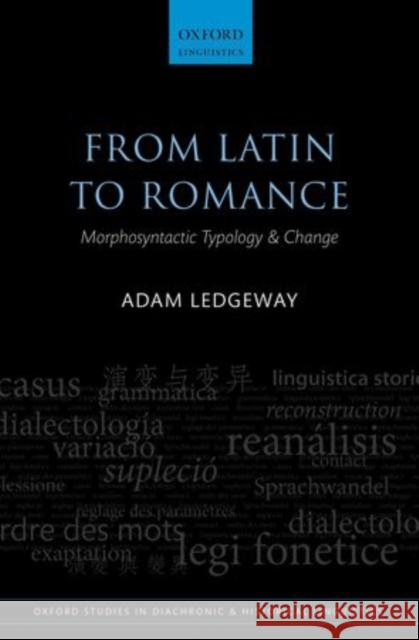From Latin to Romance: Morphosyntactic Typology and Change » książka
From Latin to Romance: Morphosyntactic Typology and Change
ISBN-13: 9780199584376 / Angielski / Twarda / 2012 / 416 str.
This book examines the grammatical changes that took place in the transition from Latin to the Romance languages. The emerging language underwent changes in three fundamental areas involving the noun phrase, verb phrase, and the sentence. The impact of the changes can be seen in the reduction of the Latin case system; the appearance of auxiliary verb structures to mark such categories tense, mood, and voice; and a shift towards greater rigidification of word order. The author considers how far these changes are interrelated and compares their various manifestations and pace of change across the different standard and non-standard varieties of Romance. He describes the historical background to the emergence of the Romance varieties and their Latin ancestry, considering in detail the richly documented diachronic variation exhibited by the Romance family.
Adam Ledgeway reviews the accounts and explanations that have been proposed within competing theoretical frameworks, and considers how far traditional ideas should be reinterpreted in light of recent theoretical developments. His wide-ranging account shows that the transition from Latin to Romance is not only of great intrinsic interest, but both provides a means of challenging linguistic orthodoxies and presents opportunities to shape new perspectives on language change, structure, and variation. His fascinating book will appeal equally to Romance linguists, Latinists, philologists, historical linguists, and syntacticians of all theoretical persuasions.











